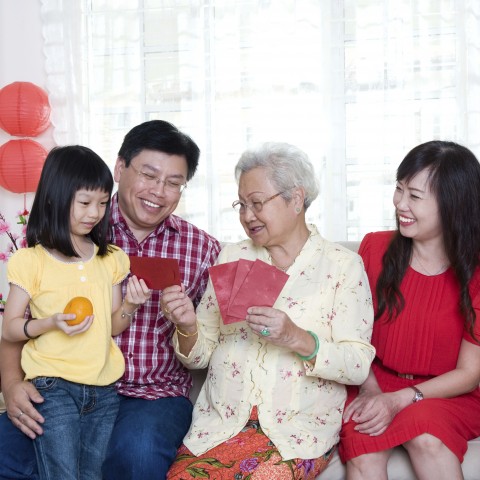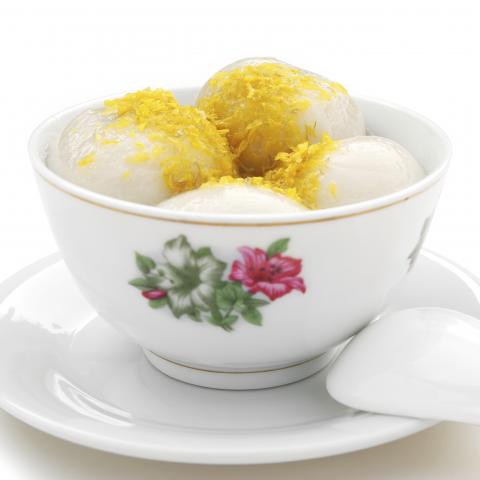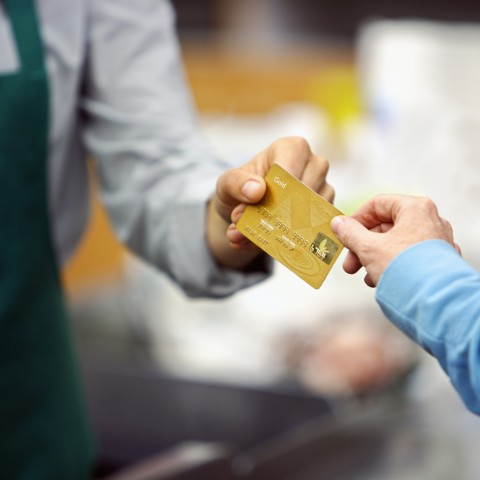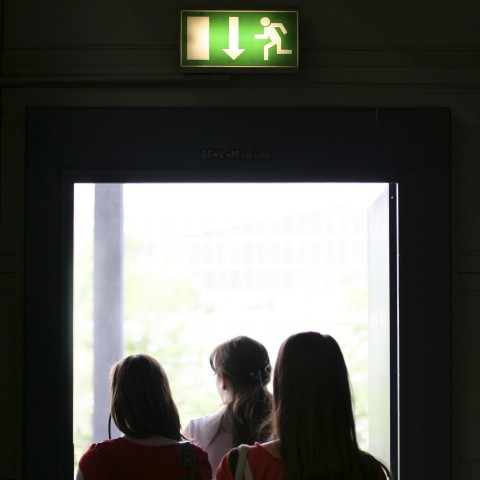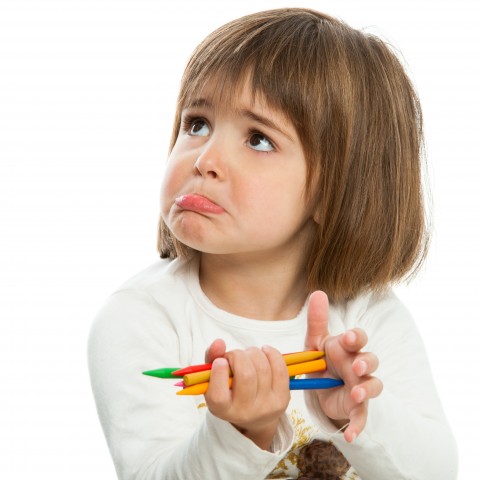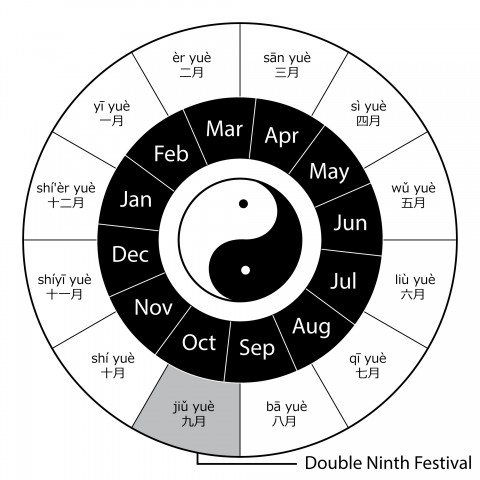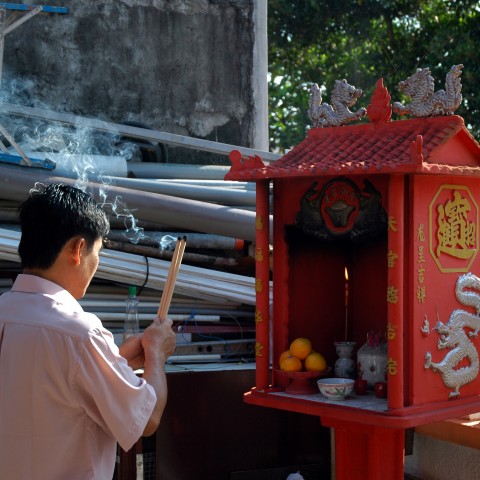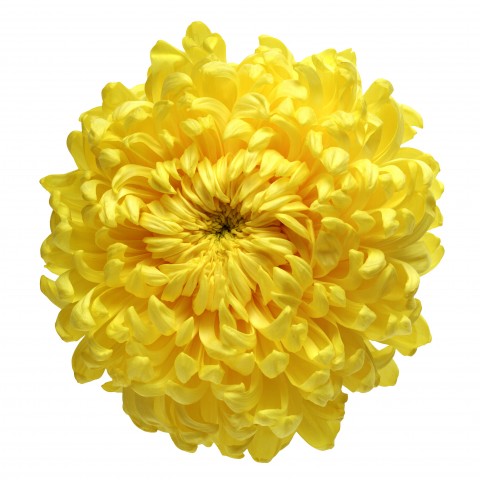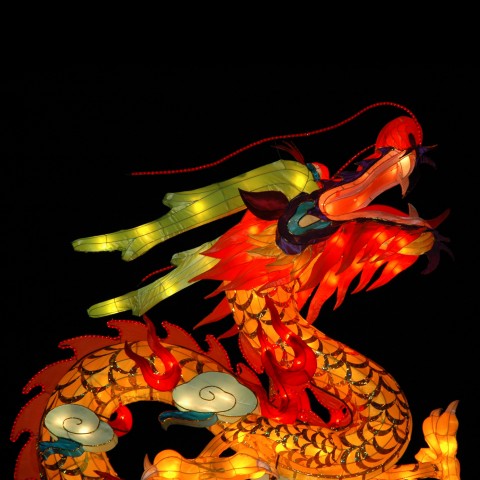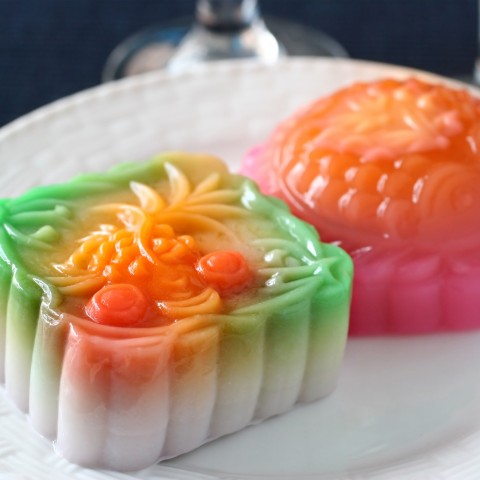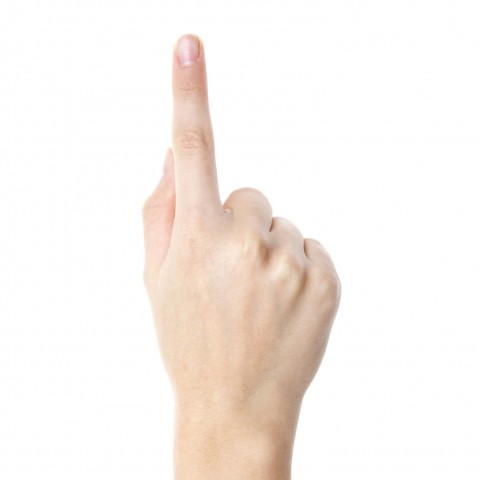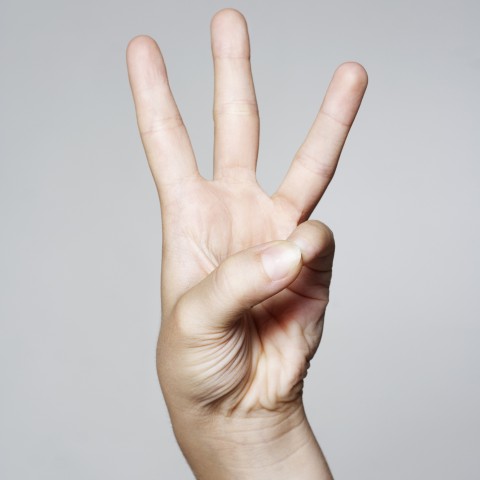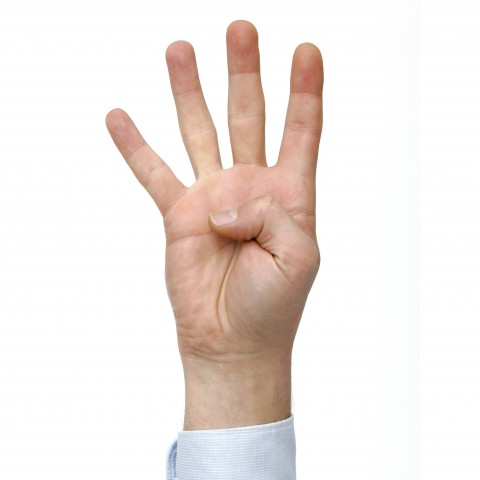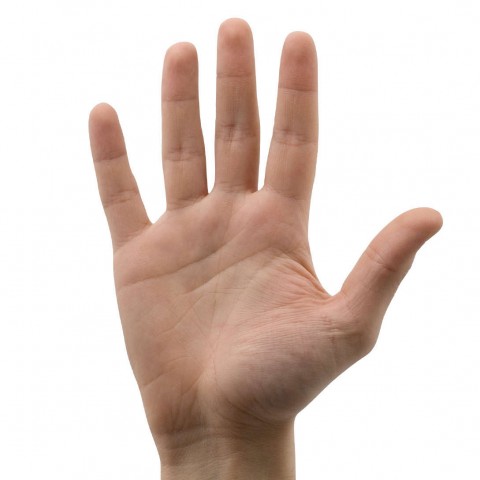
You’re learning to speak Chinese, and it’s going well. Your confidence is growing! So much so that you feel ready to share your experiences on social media—in Chinese.
At Learn Chinese, we make this easy for you to get it right the first time. Post like a boss with these phrases and guidelines, and get to practice your Chinese in the process.

1. Talking about Your Restaurant Visit in Chinese
Eating out is fun, and often an experience you’d like to share. Take a pic, and start a conversation on social media in Chinese. Your friend will be amazed by your language skills…and perhaps your taste in restaurants!
xué yǒu eats at a restaurant with his friends, posts an image of the food, and leaves this comment:

POST
Let’s break down xué yǒu’s post.
超级美味的全聚德烤鸭! (Chāojí měiwèi de Quánjùdé kǎoyā !)
“Super delicious Quanjude Peking Roast Duck!”
1- 超级美味的 (chāojí měiwèi de )
First is an expression meaning “super delicious.”
This expression is used to describe tasty food in an exaggerated way. “超级” means “super,” which indicates degree. Exaggerated language is often used on social media platforms to express the speaker’s emotions.
2- 全聚德烤鸭 (Quánjùdé kǎoyā )
Then comes the phrase – “Quanjude Peking Roast Duck.”
Peking duck is a famous dish from Beijing that has been served since the imperial era. This dish is highly prized for the duck’s crispy skin. Quanjude Peking Roast Duck is the most authentic version of Peking duck. A main feature of Quanjude Peking Roast Duck is its slicing in front of the diners.
COMMENTS
In response, xué yǒu’s friends leave some comments.
1- 好香呀! (Hǎo xiāng ya !)
His college friend, tāo, uses an expression meaning – “Smells delicious!”
Use this expression to make conversation by agreeing with the poster about the food.
2- 我也要去吃! (Wǒ yě yào qù chī !)
His girlfriend’s high school friend, xīn xīn, uses an expression meaning – “I have to go as well!”
Use this expression to indicate that you would like to have the same experience as the poster.
3- 这么肥,小心! (Zhème féi , xiǎoxīn !)
His high school friend, lì, uses an expression meaning – “So fattening, be careful!”
Use this expression to show you are feeling concerned for the poster’s weight. In Asian countries, weight issues are discussed openly, and it’s not uncustomary for friends and family to tell you to your face that you’re getting fat!
4- 环境好吗? (Huánjìng hǎo mɑ ?)
His girlfriend, jìng, uses an expression meaning – “Is the setting any good?”
Use this expression to show you are feeling curious about the restaurant’s atmosphere.
VOCABULARY
Find below the key vocabulary for this lesson:
烤鸭 (kǎoyā ): “roast duck”
香 (xiāng ): “delicious”
肥 (féi ): “fattening”
小心 (xiǎoxīn ): “careful”
好 (hǎo ): “good”
环境 (huánjìng ): “settings”
超级 (chāojí ): “super”
So, let’s practice a bit. If a friend posted something about having dinner with friends, which phrase would you use?
Now go visit a Chinese restaurant, and wow the staff with your language skills!
2. Post about Your Mall Visit in Chinese
Another super topic for social media is shopping—everybody does it, everybody loves it, and your friends on social media are probably curious about your shopping sprees! Share these Chinese phrases in posts when you visit a mall.
jìng shops with her sister at the mall, posts an image of the two of them, and leaves this comment:

POST
Let’s break down jìng’s post.
好久没血拼了。 (Hǎojiǔ méi xuè pīn le。)
“I haven’t gone shopping in a long time.”
1- 好久 (hǎojiǔ )
First is an expression meaning “in a long time.”
“好久” is a compound word. “好” is commonly used in Chinese to indicate degree, similar to the English word “very”. It can be used to modify adjectives such as big, beautiful, and delicious.
2- 没血拼了 (méi xuè pīn le)
Then comes the phrase – “I haven’t gone shopping.”
“血拼” is commonly used on social media platforms and means “going on a shopping spree”. People of urban China love shopping as well as posting their shopping photos on social media.
COMMENTS
In response, jìng’s friends leave some comments.
1- 这是在哪儿? (Zhè shì zài nǎr?)
Her neighbor, ruò lán, uses an expression meaning – “Where are you?”
Use this expression to show you are feeling curious about the poster’s location.
2- 鞋子好漂亮! (Xiézi hǎo piàoliang!)
Her high school friend, xīn xīn, uses an expression meaning – “Those shoes are so pretty!”
Use this expression to make conversation and comment on the shoes in the poster’s photo.
3- 美女! (Měinǚ!)
Her college friend, tāo, uses an expression meaning – “Hi there, gorgeous!”
Use this to make conversation by greeting the poster with a term that compliments her on her looks.
4- 折扣真心不错! (Zhékòu zhēnxīn bùcuò!)
Her boyfriend’s high school friend, lì, uses an expression meaning – “Great discounts!”
Use this expression if you are feeling optimistic about the price of merchandise.
VOCABULARY
Find below the key vocabulary for this lesson:
好久 (hǎojiǔ ): “in a long time”
血拼 (xuè pīn ): “go shopping”
美女 (měinǚ): “gorgeous”
鞋子 (xiézi): “shoes”
漂亮 (piàoliang): “pretty”
折扣 (zhékòu ): “discount”
真心不错 (zhēnxīn bùcuò): “great”
So, if a friend posted something about going shopping, which phrase would you use?
3. Talking about a Sport Day in Chinese
Sports events, whether you’re the spectator or the sports person, offer fantastic opportunities for great social media posts. Learn some handy phrases and vocabulary to start a sport-on-the-beach conversation in Chinese.
xué yǒu plays with his friends at the beach, posts an image of the team, and leaves this comment:

POST
Let’s break down xué yǒu’s post.
我们战无不胜! (Wǒmen zhànwúbùshèng!)
“We’re invincible!”
1- 我们 (wǒmen)
First is an expression meaning “we.”
Chinese love team sports and often shout slogans such as “we are the champion(我们必胜)”, “Come on! Come on!(加油!加油!)” while watching sporting events.
2- 战无不胜 (zhànwúbùshèng)
Then comes the phrase – “invincible.”
A double negative is used in “战无不胜” for emphasis. Many Chinese like to watch sporting events, especially soccer games. When Italy won the 2006 FIFA World Cup Final, one of China’s most famous football commentators became hysterical and completely forgot he was doing a show. He was then dubbed as Italy’s most loyal fan.
COMMENTS
In response, xué yǒu’s friends leave some comments.
1- 加油! (Jiāyóu !)
His girlfriend, jìng, uses an expression meaning – “Come on!”
Use this expression to be enthusiastic and supportive.
2- 我支持你! (Wǒ zhīchí nǐ !)
His supervisor, zhì qiáng, uses an expression meaning – “I’m rooting for you!”
Use this expression to be supportive, in an enthusiastic way.
3- 为什么不叫我? (Wèishénme bù jiào wǒ ?)
His college friend, tāo, uses an expression meaning – “Why didn’t you ask me?”
Use this expression to show you are feeling somewhat excluded.
4- 这不算什么! (Zhè bù suàn shénme !)
His girlfriend’s nephew, xiǎo míng, uses an expression meaning – “This is nothing!”
Use this expression if you wish to tease the poster with a humorous insult.
VOCABULARY
Find below the key vocabulary for this lesson:
战无不胜 (zhànwúbùshèng): “invincible”
加油 (jiāyóu): “come on”
支持 (zhīchí ): “root for”
为什么 (Wèishénme): “why”
叫 (jiào): “ask”
不算什么 (bù suàn shénme): “nothing”
我们 (wǒmen): “we”
Which phrase would you use if a friend posted something about sports?
But sport is not the only thing you can play! Play some music, and share it on social media.
4. Share a Song on Social Media in Chinese
Music is the language of the soul, they say. So, don’t hold back—share what touches your soul with your friends!
jìng shares a song she just heard at a party, posts an image of the artist, and leaves this comment:

POST
Let’s break down jìng’s post.
分享一首老歌。 (Fēnxiǎng yī shǒu lǎo gē 。)
“Sharing an old song.”
1- 分享 (fēnxiǎng)
First is an expression meaning “share.”
“分享” means “sharing something”. Chinese like to share their favorite books, songs and movies on social media platforms because it’s similar to sharing their emotions.
2- 一首老歌 (yī shǒu lǎo gē)
Then comes the phrase – “an old song.”
“一首” is a compound word that consists of a numeral and a classifier/measure word. Classifiers/measure words are frequently used in the Chinese language when a noun is quantified by a numeral. Normally, it is necessary to insert a classifier between the numeral and the noun when a phrase like “one song” is translated into Chinese. The Chinese equivalent for “one song” is “一首歌”, where “一” means “one”, “歌” means “song”, and “首” is the required classifier. The 1990s was the golden age of Chinese pop music. Many excellent musicians, singers and music pieces came from that period. Much of today’s youth still enjoys songs from that period.
COMMENTS
In response, jìng’s friends leave some comments.
1- 有点伤感。 (Yǒudiǎn shānggǎn 。)
Her neighbor, ruò lán, uses an expression meaning – “Sounds a bit sad.”
Use this expression to indicate how the song makes you feel.
2- 喜欢歌词。 (Xǐhuān gēcí 。)
Her high school friend, xīn xīn, uses an expression meaning – “I like the lyrics.”
Use this expression to indicate your preference.
3- 好像是一个电影的插曲。 (Hǎoxiàng shì yī gè diànyǐng de chāqǔ 。)
Her boyfriend’s high school friend, lì, uses an expression meaning – “Seems like a movie soundtrack.”
Use this expression to share a personal opinion.
4- 真老土! (Zhēn lǎo tǔ !)
Her nephew, xiǎo míng, uses an expression meaning – “Really old-fashioned!”
Use this expression if you think the song is dated.
VOCABULARY
Find below the key vocabulary for this lesson:
老歌 (lǎo gē ): “old song”
有点 (yǒudiǎn): “a bit”
伤感 (shānggǎn): “sad”
喜欢 (xǐhuān): “like”
电影 (diànyǐng): “movie”
分享 (fēnxiǎng): “share”
老土 (lǎo tǔ): “old-fashioned”
Which song would you share? And what would you say to a friend who posted something about sharing music or videos?
Now you know how to start a conversation about a song or a video on social media!
5. Chinese Social Media Comments about a Concert
Still on the theme of music—visiting live concerts and shows just have to be shared with your friends. Here are some handy phrases and vocab to wow your followers with in Chinese!
xué yǒu goes to a concert, posts an image of it, and leaves this comment:

POST
Let’s break down xué yǒu’s post.
一年一度的草原音乐节,超赞! (Yī nián yī dù de cǎoyuán yīnyuè jié , chāo zàn !)
“The annual Grasslands Music Festival, fabulous!”
1- 一年一度的草原音乐节 (yī nián yī dù de cǎoyuán yīnyuè jié)
First is an expression meaning “the annual Grasslands Music Festival.”
The Zhang Bei Grasslands Music Festival, also known as the InMusic Festival, is the largest and arguably the most entertaining music festival in China. Singers and audience members of this festival are known to build close connections with each other and the beautiful scenery that surrounds them. This festival is named “green” due to its location.
2- 超赞 (chāo zàn )
Then comes the phrase – “fabulous.”
This expression is used to describe something that is particularly good. It is commonly used on social media platforms but is rarely used in everyday conversation.
COMMENTS
In response, xué yǒu’s friends leave some comments.
1- 真棒! (Zhēn bàng !)
His college friend, tāo, uses an expression meaning – “Awesome!”
Use this expression when you’re agreeing with the poster and are feeling excited.
2- 很壮观。 (Hěn zhuàngguān 。)
His supervisor, zhì qiáng, uses an expression meaning – “Very spectacular.”
Use this expression to show you too are feeling positive about the festival.
3- 人好多呀! (Rén hǎoduō ya !)
His girlfriend’s high school friend, xīn xīn, uses an expression meaning – “Very crowded!”
Use this expression to give a personal opinion about the festival.
4- 真羡慕! (Zhēn xiànmù !)
His high school friend, lì, uses an expression meaning – “I’m so jealous!”
Use this expression to show you are feeling envious.
VOCABULARY
Find below the key vocabulary for this lesson:
音乐节 (yīnyuè jié): “music festival”
超赞 (chāo zàn): “fabulous”
真棒 (zhēn bàng ): “awesome”
好 (hǎo): “very”
壮观 (zhuàngguān): “spectacular”
一年一度 (yī nián yī dù): “annual”
羡慕 (xiànmù ): “jealous”
If a friend posted something about a concert , which phrase would you use?
6. Talking about an Unfortunate Accident in Chinese
Oh dear. You broke something by accident. Use these Chinese phrases to start a thread on social media. Or maybe just to let your friends know why you are not contacting them!
jìng accidentally breaks her mobile phone, and leaves this comment:

POST
Let’s break down jìng’s post.
我把手机摔坏了,真倒霉! (Wǒ bǎ shǒujī shuāi huài le , zhēn dǎoméi !)
“I broke my cell phone. What bad luck!”
1- 我把手机摔坏了 (wǒ bǎ shǒujī shuāi huài le)
First is an expression meaning “I broke my cell phone.”
把 is a Chinese grammatical construction. In this construction, the functional word “把” is placed before the object of a verb, and the object is placed before the verb. This construction indicates that an action is done to the object by the subject.
2- 真倒霉 (zhēn dǎoméi)
Then comes the phrase – “What bad luck.”
This expression is commonly used to indicate that something bad happened.
COMMENTS
In response, jìng’s friends leave some comments.
1- 怎么回事? (Zěnme huí shì ?)
Her neighbor, ruò lán, uses an expression meaning – “What happened?”
Use this expression to show you are feeling curious and would like to know more details.
2- 现在的手机都很容易坏! (Xiànzài de shǒujī dōu hěn róngyì huài !)
Her boyfriend’s high school friend, lì, uses an expression meaning – “Cell phones break easily these days!”
Use this expression if you are feeling pessimistic.
3- 刚好换个新的! (Gānghǎo huàn gè xīn de !)
Her high school friend, xīn xīn, uses an expression meaning – “It’s time to get a new one!”
Use this expression to make conversation.
4- 我很同情你。 (Wǒ hěn tóngqíng nǐ 。)
Her college friend, tāo, uses an expression meaning – “I feel sorry for you.”
Use this expression if you are feeling sympathy for the poster.
VOCABULARY
Find below the key vocabulary for this lesson:
手机 (shǒujī ): “cellphone”
你 (nǐ ): “you”
容易 (róngyì ): “easily”
摔坏 (shuāi huài ): “break”
新 (xīn ): “new”
同情 (tóngqíng ): “feel sorry for”
坏 (huài ): “broken”
If a friend posted something about having broken something by accident, which phrase would you use?
So, now you know how to describe an accident in Chinese. Well done!
7. Chat about Your Boredom on Social Media in Chinese
Sometimes, we’re just bored with how life goes. And to alleviate the boredom, we write about it on social media. Add some excitement to your posts by addressing your friends and followers in Chinese!
xué yǒu gets bored at home, and leaves this comment:

POST
Let’s break down xué yǒu’s post.
好无聊呀!谁能帮帮我? (Hǎo wúliáo ya ! Shéi néng bāng bāng wǒ ?)
“So boring! Will someone help me?”
1- 好无聊呀 (hǎo wúliáo ya)
First is an expression meaning “so boring.”
People often use this expression when they have nothing to do. It often implies that he/she wants someone to talk to or that he/she needs advice from someone on what to do.
2- 谁能帮帮我 (shéi néng bāng bāng wǒ)
Then comes the phrase – “will someone help me.”
Duplications like “帮帮” are common in Chinese. Words or phrases are repeated to produce a modified meaning. Classifiers can be repeated to indicate “every”. For example, “个个都聪明” means “every one of them is clever”.
COMMENTS
In response, xué yǒu’s friends leave some comments.
1- 一个人多清净。 (Yī gè rén duō qīngjìng 。)
His high school friend, lì, uses an expression meaning – “Nothing beats peace and quiet.”
Use this expression if you’re of the opinion that the poster shouldn’t complain about having nothing to do.
2- 请我吃饭! (Qǐng wǒ chīfàn !)
His college friend, tāo, uses an expression meaning – “Take me out to dinner!”
Use this expression to be funny but also offer a solution.
3- 去踢足球,或者去游泳。 (Qù tī zúqiú , huòzhě qù yóuyǒng 。)
His supervisor, zhì qiáng, uses an expression meaning – “Play soccer, or go swimming.”
Use this phrase to give suggestions.
4- 我也是一样。 (Wǒ yěshì yīyàng 。)
His girlfriend’s high school friend, xīn xīn, uses an expression meaning – “Same here.”
Use this expression to indicate that you’re in a similar situation as the poster.
VOCABULARY
Find below the key vocabulary for this lesson:
无聊 (wúliáo ): “boring”
帮 (bāng ): “help”
饭 (fàn ): “dinner”
足球 (zúqiú ): “soccer”
或者 (huòzhě ): “or”
一样 (yīyàng ): “same”
去游泳 (qù yóuyǒng ): “go swimming”
If a friend posted something about being bored, which phrase would you use?
Still bored? Share another feeling and see if you can start a conversation!
8. Exhausted? Share It on Social Media in Chinese
Sitting in public transport after work, feeling like chatting online? Well, converse in Chinese about how you feel, and let your friends join in!
jìng feels exhausted after a long day at work, posts an image of herself looking tired, and leaves this comment:

POST
Let’s break down jìng’s post.
累死了!连饭都不想吃! (Lèi sǐ le ! Lián fàn dōu bùxiǎng chī !)
“Exhausted! I don’t even want to eat!”
1- 累死了 (lèi sǐ le )
First is an expression meaning “exhausted.”
“死了” usually follows adjectives with negative connotations to exaggerate the degree of how bad something is. In recent years, however, “死了” has also been added to adjectives with positive connotations to indicate a higher degree. For instance, 可爱死了 so lovely, 开心死了 so happy, etc.
2- 连饭都不想吃 (lián fàn dōu bùxiǎng chī)
Then comes the phrase – “I don’t even want to eat.”
“连… 都…” is used to introduce an element that is to be emphasized, mostly unexpected or surprising events or information. It can be used in the same manner as “even”.
COMMENTS
In response, jìng’s friends leave some comments.
1- 你应该换个工作。 (Nǐ yīnggāi huàn gè gōngzuò 。)
Her college friend, tāo, uses an expression meaning – “You should get a new job.”
Use this expression to offer a suggestion to the poster.
2- 做个按摩! (Zuò gè ànmó !)
Her neighbor, ruò lán, uses an expression meaning – “Get a massage!”
Use this expression to make a positive suggestion.
3- 挺住! (Tǐng zhù !)
Her high school friend, xīn xīn, uses an expression meaning – “Hang in there!”
Use this expression to be supportive.
4- 早休息吧。 (Zǎo xiūxi ba 。)
Her boyfriend’s high school friend, lì, uses an expression meaning – “Have an early night.”
Use this expression to show you are caring.
VOCABULARY
Find below the key vocabulary for this lesson:
累 (lèi ): “exhausted”
应该 (yīnggāi ): “should”
工作 (gōngzuò ): “job”
按摩 (ànmó ): “massage”
挺住 (tǐng zhù ): “hang in there”
早休息 (zǎo xiūxi): “have an early night”
吃 (chī ): “eat”
If a friend posted something about being exhausted, which phrase would you use?
Now you know how to say you’re exhausted in Chinese! Well done.
9. Talking about an Injury in Chinese
So life happens, and you manage to hurt yourself during a soccer game. Very Tweet-worthy! Here’s how to do it in Chinese.
xué yǒu suffers a painful injury, posts an image of his leg, and leaves this comment:

POST
Let’s break down xué yǒu’s post.
打篮球摔伤了腿,真命苦! (Dǎ lánqiú shuāi shāng le tuǐ , zhēn mìng kǔ !)
“I hurt my leg while playing basketball. So unlucky!”
1- 打篮球摔伤了腿 (dǎ lánqiú shuāi shāng le tuǐ)
First is an expression meaning “I hurt my leg while playing basketball.”
“摔伤” is a complementary phrase. The two kinds of complementary phrases are verb-complement phrases and adjective-complement phrases. A verb-complement phrase consists of a verb and a complement. For example, 看清楚 see clearly(看 is the verb and 清楚 is the complement).
2- 真命苦 ( zhēn mìng kǔ)
Then comes the phrase – “so unlucky.”
“真命苦” is commonly used in oral expressions and means very unlucky.
COMMENTS
In response, xué yǒu’s friends leave some comments.
1- 怎么这么不小心! (Zěnme zhème bù xiǎoxīn!)
His neighbor, ruò lán, uses an expression meaning – “So careless!”
Use this expression to criticise the poster for hurting themselves.
2- 严重吗? (Yánzhòng mɑ ?)
His college friend, tāo, uses an expression meaning – “Is it serious?”
Use this expression to show you are feeling worried and concerned.
3- 祝你早日康复! (Zhù nǐ zǎorì kāngfù !)
His girlfriend’s high school friend, xīn xīn, uses an expression meaning – “Get better soon!”
Use this expression if you are feeling warmhearted and wish the poster a speedy recovery.
4- 好可怜。 (Hǎo kělián 。)
His high school friend, lì, uses an expression meaning – “Poor thing.”
Use this expression to show you are sympathetic.
VOCABULARY
Find below the key vocabulary for this lesson:
篮球 (lánqiú ): “basketball”
命苦 (mìng kǔ ): “unlucky”
腿 (tuǐ ): “leg”
不小心 (bù xiǎoxīn ): “careless”
严重 (yánzhòng ): “serious”
早日 (zǎorì): “soon”
可怜 (kělián ): “poor”
If a friend posted something about being injured, which phrase would you use?
We love to share our fortunes and misfortunes; somehow that makes us feel connected to others.
10. Starting a Conversation Feeling Disappointed in Chinese
Sometimes things don’t go the way we planned. Share your disappointment about this with your friends!
jìng feels disappointed about today’s weather, posts an image of it, and leaves this comment:

POST
Let’s break down jìng’s post.
又是雾霾天!还怎么出门! (Yòu shì wùmái tiān ! Hái zěnme chūmén !)
“Smoggy day again! How could I possibly go out!”
1- 又是雾霾天 (yòu shì wùmái tiān)
First is an expression meaning “smoggy day again.”
Nowadays, people often talk about smoggy days because pollution is becoming a serious issue in China, especially in the northern cities.
2- 还怎么出门 (hái zěnme chūmén)
Then comes the phrase – “how could I possibly go out.”
“怎么” is an interrogative pronoun. Pronouns can replace nouns, verbs, adjectives, numerals, and adverbs and can be classified as personal pronouns, demonstrative pronouns, or interrogative pronouns. Personal pronouns are used to replace people or things. Demonstrative pronouns are used to distinguish people or things. And interrogative pronouns are used to ask questions.
COMMENTS
In response, jìng’s friends leave some comments.
1- 污染越来越严重! (Wūrǎn yuè lái yuè yánzhòng !)
Her supervisor, zhì qiáng, uses an expression meaning – “Pollution is becoming more and more serious!”
Use this expression to agree with the poster by giving a personal opinion.
2- 戴口罩! (Dài kǒuzhào !)
Her high school friend, xīn xīn, uses an expression meaning – “Wear a mask!”
Use this expression to make a suggestion.
3- 远离城市。 (Yuǎnlí chéngshì 。)
Her boyfriend’s high school friend, lì, uses an expression meaning – “Get away from the city.”
Use this expression to show you are feeling pessimistic too, and make a suggestion.
4- 天气真糟糕!可怕! (Tiānqì zhēn zāogāo ! Kěpà !)
Her neighbor, ruò lán, uses an expression meaning – “Such terrible weather! Horrible!”
This is another expression indicating that you strongly agree with the poster about the weather.
VOCABULARY
Find below the key vocabulary for this lesson:
雾霾 (wùmái ): “smoggy”
出门 (chūmén ): “go out”
污染 (wūrǎn ): “pollution”
口罩 (kǒuzhào ): “mask”
远离 (yuǎnlí ): “get away from”
城市 (chéngshì ): “city”
可怕 (kěpà ): “horrible”
How would you comment in Chinese when a friend is disappointed?
Not all posts need to be about a negative feeling, though!
11. Talking about Your Relationship Status in Chinese
Don’t just change your relationship status in Settings, talk about it!
xué yǒu changes his status to “In a relationship”, posts an image of him and his girlfriend, and leaves this comment:

POST
Let’s break down xué yǒu’s post.
太激动了,我恋爱了! (Tài jīdòng le , wǒ liàn’ài le !)
“So excited. I’m in love!”
1- 太激动了 (tài jīdòng le)
First is an expression meaning “so excited.”
“太激动了” is used when the speaker is excited about something.
2- 我恋爱了 (wǒ liàn’ài le)
Then comes the phrase – “I’m in love.”
In China, people usually express their love in a subtle way. However, nowadays, younger people are becoming more open and direct and tend to show their love boldly, like on social media.
COMMENTS
In response, xué yǒu’s friends leave some comments.
1- 祝福你们! (Zhùfú nǐmen !)
His neighbor, ruò lán, uses an expression meaning – “You have my blessing!”
Use this blessing to show you are feeling warmhearted and positive about the relationship.
2- 真的假的? (Zhēn de jiǎ de ?)
His college friend, tāo, uses an expression meaning – “For real?”
Use this expression to show you are feeling frivolous, but probably positive about the announcement.
3- 可爱的女孩。 (Kě’ài de nǚhái 。)
His high school friend, lì, uses an expression meaning – “Lovely girl.”
Use this expression to show you are feeling appreciative of the poster’s choice in women.
4- 简直是个奇迹! (Jiǎnzhí shì gè qíjì !)
His girlfriend’s high school friend, xīn xīn, uses an expression meaning – “It’s a miracle!”
Use this expression to be funny.
VOCABULARY
Find below the key vocabulary for this lesson:
激动 (jīdòng ): “excited”
恋爱 (liàn’ài ): “be in love”
你们 (nǐmen ): “you”
女孩 (nǚhái ): “girl”
可爱 (kě’ài ): “lovely”
奇迹 (qíjì ): “miracle”
真的 (zhēn de ): “real”
What would you say in Chinese when a friend changes their relationship status?
Being in a good relationship with someone special is good news – don’t be shy to spread it!
12. Post about Getting Married in Chinese
Wow, so things got serious, and you’re getting married. Congratulations! Or, your friend is getting married, so talk about this in Chinese.
jìng is getting married today, so she leaves this comment:

POST
Let’s break down jìng’s post.
我是世界上最幸福的人。我们结婚了! (Wǒ shì shìjiè shàng zuì xìngfú de rén 。 Wǒmen jiéhūn le !)
“I am the happiest person in the world. We got married!”
1- 我是世界上最幸福的人 (wǒ shì shìjiè shàng zuì xìngfú de rén)
First is an expression meaning “I am the happiest person in the world.”
In China, people often use this phrase to express their happiness, especially after they tie the knot.
2- 我们结婚了 (wǒmen jiéhūn le)
Then comes the phrase – “we got married.”
“了” indicates the realization or completion of an action. For instance, 我写了两封信 (I wrote two letters).
COMMENTS
In response, jìng’s friends leave some comments.
1- 恭喜恭喜! (Gōngxǐ gōngxǐ !)
Her neighbor, ruò lán, uses an expression meaning – “Congratulations!”
This is the traditional response to this kind of news.
2- 你今天最美! (Nǐ jīntiān zuì měi !)
Her husband’s high school friend, lì, uses an expression meaning – “You look your best today!”
Use this phrase to compliment the bride on her appearance.
3- 他才是最幸福的人。 (Tā cái shì zuì xìngfú de rén 。)
Her high school friend, xīn xīn, uses an expression meaning – “He’s the happiest person.”
Use this expression to compliment the bride on who she is, meaning the bridegroom is lucky to have landed a bride like her.
4- 郎才女貌。 (Lángcáinǚmào 。)
Her supervisor, zhì qiáng, uses an expression meaning – “Perfect match.”
Use this statement to indicate what you think of the match.
VOCABULARY
Find below the key vocabulary for this lesson:
世界 (shìjiè ): “world”
最幸福 (zuì xìngfú ): “happiest”
结婚 (jiéhūn ): “get married”
恭喜 (gōngxǐ ): “congratulations”
他 (tā ): “he”
人 (rén ): “person”
今天 (jīntiān ): “today”
How would you respond in Chinese to a friend’s post about getting married?
For the next topic, fast forward about a year into the future after the marriage…
13. Announcing Big News in Chinese
Wow, huge stuff is happening in your life! Announce it in Chinese.
xué yǒu finds out he and his wife are going to have a baby, posts an image of the two of them, and leaves this comment:

POST
Let’s break down xué yǒu’s post.
重大消息!我要有宝宝了! (Zhòngdà xiāoxi ! Wǒ yào yǒu bǎobao le !)
“Big news! I’m having a baby!”
1- 重大消息 (zhòngdà xiāoxi)
First is an expression meaning “big news.”
“重大消息” is often placed in front of an important message to draw people’s attention. This message can be either a good thing or a bad thing, but in most cases it’s good.
2- 我要有宝宝了 (wǒ yào yǒu bǎobao le)
Then comes the phrase – “I’m having a baby.”
The adverb “要” and the modal particle “了” are used to describe an action that will happen in the future. The adverb “要” functions as an adverbial adjunct. For instance, 我要睡觉了 (I’m going to bed).
COMMENTS
In response, xué yǒu’s friends leave some comments.
1- 你终于要做爸爸了! (Nǐ zhōngyú yào zuò bàba le !)
His college friend, tāo, uses an expression meaning – “You’re finally going to be a father!”
Use this expression to show you are feeling excited and happy for the poster.
2- 起好名字了吗? (Qǐ hǎo míngzi le mɑ ?)
His neighbor, ruò lán, uses an expression meaning – “Have you picked a name yet?”
Use this phrase to make conversation by asking a question.
3- 真是个好消息! (Zhēn shì gè hǎo xiāoxi !)
His high school friend, lì, uses an expression meaning – “What great news!”
Use this expression to show you are feeling optimistic about the news.
4- 我要做哥哥了,哈! (Wǒ yào zuò gēge le , hā !)
His nephew, xiǎo míng, uses an expression meaning – “I’m going to be a big brother, ha!”
Use this expression to be funny.
VOCABULARY
Find below the key vocabulary for this lesson:
重大 (zhòngdà ): “big”
消息 (xiāoxi ): “news”
宝宝 (bǎobao ): “baby”
终于 (zhōngyú ): “finally”
名字 (míngzi): “name”
哥哥 (gēge ): “big brother”
爸爸 (bàba ): “father”
Which phrase would you choose when a friend announces their pregnancy on social media?
So, talking about a pregnancy will get you a lot of traction on social media. But wait till you see the responses to babies!
14. Posting Chinese Comments about Your Baby
Your bundle of joy is here, and you cannot keep quiet about it! Share your thoughts in Chinese.
jìng plays with her baby, posts an image of the little one, and leaves this comment:

POST
Let’s break down jìng’s post.
我的萌宝宝还知道对着镜头笑呢! (Wǒ de méng bǎobao hái zhīdào duì zhe jìngtóu xiào ne !)
“My adorable baby even knows to smile at the camera!”
1- 我的萌宝宝 (wǒ de méng bǎobao)
First is an expression meaning “my adorable baby.”
Chinese people often use the word “萌” on social media platform to express that someone or something is very cute. For example, 这只小狗很萌 (This puppy is so cute).
2- 还知道对着镜头笑呢 (hái zhīdào duì zhe jìngtóu xiào ne)
Then comes the phrase – “even knows to smile at the camera.”
In China, younger parents like to share their baby’s photos on social media. Some parents even update the photos every day to record their baby’s development.
COMMENTS
In response, jìng’s friends leave some comments.
1- 好可爱! (Hǎo kěài !)
Her husband’s high school friend, lì, uses an expression meaning – “So cute!”
Use this expression if you think the baby is adorable.
2- 真想捏捏她的小脸。 (Zhēn xiǎng niē nie tā de xiǎoliǎn 。)
Her high school friend, xīn xīn, uses an expression meaning – “Really want to squeeze her little face.”
Use this expression to be affectionate.
3- 笑得真坏。 (Xiào de zhēn huài 。)
Her neighbor, ruò lán, uses an expression meaning – “Such a wicked grin.”
This is a humorous expression to indicate that you like the baby’s smile.
4- 超级宝宝! (Chāojí bǎobao !)
Her college friend, tāo, uses an expression meaning – “Super baby!”
Use this expression to show your enthusiastic, positive feelings about the baby.
VOCABULARY
Find below the key vocabulary for this lesson:
萌 (méng ): “adorable”
镜头 (jìngtóu ): “camera”
笑 (xiào ): “smile”
对着 (duì zhe): “at”
超级 (chāojí ): “super”
脸 (liǎn ): “face”
捏 (niē ): “squeeze”
If your friend is the mother or father, which phrase would you use on social media?
Congratulations, you know the basics of chatting about a baby in Chinese! But we’re not done with families yet…
15. Chinese Comments about a Family Reunion
Family reunions – some you love, some you hate. Share about it on your feed.
xué yǒu goes to a family gathering, posts an image of the group, and leaves this comment:

POST
Let’s break down xué yǒu’s post.
温馨时刻,一家人,一顿大餐 (Wēnxīn shíkè , yī jiā rén , yī dùn dàcān)
“Warm moments, the whole family, a big meal.”
1- 温馨时刻 (wēnxīn shíkè)
First is an expression meaning “warm moments.”
“…时刻” is often used on social media to indicate a very special moment.
2- 一家人,一顿大餐 (yī jiā rén , yī dùn dàcān)
Then comes the phrase – “the whole family, a big meal.”
“大餐” means “big meal”. Chinese people enjoy having big meals during get-togethers.
COMMENTS
In response, xué yǒu’s friends leave some comments.
1- 直流口水! (Zhí liú kǒushuǐ !)
His wife’s high school friend, xīn xīn, uses an expression meaning – “Mouth watering!”
Use this expression to comment on the food.
2- 真是热闹。 (Zhēn shì rènao 。)
His neighbor, ruò lán, uses an expression meaning – “So lively.”
Use this phrase to describe the family, if you perceive them to be energetic.
3- 酒喝得不少吧? (Jiǔ hē de bù shǎo ba ?)
His college friend, tāo, uses an expression meaning – “You drank a lot, didn’t you?”
Use this expression to make fun of the poster’s drinking habits.
4- 可惜没有我。 (Kěxī méi yǒu wǒ 。)
His nephew, xiǎo míng, uses an expression meaning – “Too bad I wasn’t there.”
Use this expression to show you are regretful for not having attended.
VOCABULARY
Find below the key vocabulary for this lesson:
温馨 (wēnxīn ): “warm”
时刻 (shíkè ): “moment”
餐 (cān ): “meal”
一家人 (yī jiā rén ): “the whole family”
一 (yī ): “a”
不少 (bù shǎo ): “a lot”
可惜 (kěxī ): “too bad”
Which phrase is your favorite to comment on a friend’s photo about a family reunion?
16. Post about Your Travel Plans in Chinese
So, the family are going on holiday. Do you know how to post and leave comments in Chinese about being at the airport, waiting for a flight?
jìng waits at the airport for her flight, posts an image of it, and leaves this comment:

POST
Let’s break down jìng’s post.
一个人的旅行,出发了! (Yī gè rén de lǚxíng , chūfā le !)
“One man’s journey. Get going!”
1- 一个人的旅行 (yī gè rén de lǚxíng)
First is an expression meaning “one man’s journey.”
“一个人的旅行” indicates that someone is traveling alone. This phrase refers to “a journey of self-discovery” and is a kind of literary expression.
2- 出发了 (chūfā le )
Then comes the phrase – “get going.”
This expression means “starting a journey” and is commonly used when someone is heading for a new place.
COMMENTS
In response, jìng’s friends leave some comments.
1- 去哪里玩? (Qù nǎlǐ wán ?)
Her husband’s high school friend, lì, uses an expression meaning – “Where are you heading?”
Use this expression to show you are feeling curious about the poster’s holiday destination.
2- 带好吃的回来! (Dài hǎochī de huílái !)
Her high school friend, xīn xīn, uses an expression meaning – “Bring me some treats!”
Use this expression if you want the poster to bring you gifts.
3- 一路顺风。 (Yīlù shùnfēng 。)
Her neighbor, ruò lán, uses an expression meaning – “Bon voyage.”
This is a loan-expression from French, which means “Travel well!” It is often used in other languages.
4- 注意安全哦。 (Zhùyì ānquán o 。)
Her husband, xué yǒu, uses an expression meaning – “Be safe.”
Use this expression to show you are feeling concerned and wish the poster well.
VOCABULARY
Find below the key vocabulary for this lesson:
旅行 (lǚxíng ): “journey”
出发 (chūfā ): “get going”
哪里 (nǎlǐ ): “where”
好吃的 (hǎochī de ): “treats”
一路顺风 (yīlù shùnfēng): “bon voyage”
一个人的 (yī gè rén de): “one man’s”
安全 (ānquán ): “safe”
Choose and memorize your best airport phrase in Chinese!
Hopefully the rest of the trip is better!
17. Posting about an Interesting Find in Chinese
So maybe you’re strolling around at your local market, and find something interesting. Here are some handy Chinese phrases!
xué yǒu finds an unusual item at a local market, posts an image of it, and leaves this comment:

POST
Let’s break down xué yǒu’s post.
刚淘到的好东西。让你们开开眼! (Gāng táo dào de hǎo dōngxi 。 Ràng nǐmen kāi kāi yǎn !)
“Just got some great stuff. Behold!”
1- 刚淘到的好东西 (gāng táo dào de hǎo dōngxi)
First is an expression meaning “just got some great stuff.”
“淘到的” is used to indicate that a person bought something. This phrase should be followed by a noun such as a dress, a bag, etc.
2- 让你们开开眼 (ràng nǐmen kāi kāi yǎn )
Then comes the phrase – “behold.”
This expression is used to show off something you have. It indicates that you want admiration.
COMMENTS
In response, xué yǒu’s friends leave some comments.
1- 什么宝贝? (Shénme bǎobei ?)
His neighbor, ruò lán, uses an expression meaning – “What did you get?”
Use this expression to show you are feeling curious about the purchase.
2- 你好厉害! (Nǐ hǎo lìhai !)
His wife’s high school friend, xīn xīn, uses an expression meaning – “Impressive!”
Use this expression if you’re impressed with the poster’s purchase.
3- 真精致。一定价值不菲吧? (Zhēn jīngzhì 。 Yī dìng jiàzhí bùfěi ba ?)
His high school friend, lì, uses an expression meaning – “Really exquisite. Must’ve cost a fortune, right?”
Use these phrases to make conversation by giving a personal opinion, and asking a question too.
4- 是要送给我的吧? (Shì yào sòng gěi wǒ de ba ?)
His college friend, tāo, uses an expression meaning – “A present for me, right?”
Use this expression to show you are feeling playful.
VOCABULARY
Find below the key vocabulary for this lesson:
刚 (gāng ): “just”
淘到 (táo dào ): “get”
东西 (dōngxi ): “stuff”
什么 (shénme ): “what”
厉害 (lìhai): “impressive”
价值不菲 (jiàzhí bùfěi): “cost a fortune”
精致 (jīngzhì ): “exquisite”
Which phrase would you use to comment on a friend’s interesting find?
Perhaps you will even learn the identity of your find! Or perhaps you’re on holiday, and visiting interesting places…
18. Post about a Sightseeing Trip in Chinese
Let your friends know what you’re up to in Chinese, especially when visiting a remarkable place! Don’t forget the photo.
jìng visits a famous landmark, posts an image of it, and leaves this comment:

POST
Let’s break down jìng’s post.
登顶长城。感觉就是不一样! (Dēng dǐng Cháng chéng 。 Gǎnjué jiù shì bù yīyàng !)
“Reached the top of the Great Wall. Feels great!”
1- 登顶长城 (dēng dǐng Cháng chéng)
First is an expression meaning “reached the top of the Great Wall.”
The Great Wall is one of the largest construction projects ever completed. The wall is constructed of masonry, rocks and packed-earth and stretches 4,160 miles across North China.
2- 感觉就是不一样 (gǎnjué jiù shì bù yīyàng)
Then comes the phrase – “feels great.”
This expression is used when someone feels good about something, but it can also be used to describe a place, an activity, etc.
COMMENTS
In response, jìng’s friends leave some comments.
1- 真壮观! (Zhēn zhuàngguān !)
Her neighbor, ruò lán, uses an expression meaning – “Really spectacular!”
Use this expression to show you are feeling in awe.
2- 看上去风好大。 (Kàn shàng qù fēng hǎo dà 。)
Her husband’s high school friend, lì, uses an expression meaning – “Looks so windy.”
Share this phrase as a personal opinion.
3- 我很久没有去长城了! (Wǒ hěn jiǔ méi yǒu qù Cháng chéng le !)
Her high school friend, xīn xīn, uses an expression meaning – “I haven’t been to the Great Wall for a long time!”
This comment is another phrase to use if you want to make conversation by sharing a personal detail.
4- 哪一个? (Nǎ yī gè ?)
Her college friend, tāo, uses an expression meaning – “Which one?”
Use this expression to show you are feeling frivolous and you wish to tease the poster.
VOCABULARY
Find below the key vocabulary for this lesson:
长城 (Cháng chéng ): “the Great Wall”
感觉 (gǎnjué ): “feel”
一个 (yī gè ): “one”
看上去 (kàn shàng qù ): “look”
顶 (dǐng ): “top”
哪 (nǎ ): “which”
登 (dēng ): “reach”
Which phrase would you prefer when a friend posts about a famous landmark?
Share your special places with the world. Or simply post about your relaxing experiences.
19. Post about Relaxing Somewhere in Chinese
So you’re doing nothing yet you enjoy that too? Tell your social media friends about it in Chinese!
xué yǒu relaxes at a beautiful place, posts an image of it, and leaves this comment:

POST
Let’s break down xué yǒu’s post.
晒一下我的休闲天堂,美妙绝伦。 (Shài yī xià wǒ de xiūxián tiāntáng , měimiào juélún 。)
“Check out my paradise, truly exceptional.”
1- 晒一下我的休闲天堂 (shài yī xià wǒ de xiūxián tiāntáng)
First is an expression meaning “check out my paradise.”
“晒一下” means “check out something” and is often used on social media platforms. For instance, 晒一下我的新鞋 (check out my new shoes).
2- 美妙绝伦 (měimiào juélún)
Then comes the phrase – “truly exceptional.”
“美妙绝伦” is an example of Chengyu. Chengyu are a type of traditional Chinese idiomatic expression, most of which consist of four characters. Chengyu were widely used in Classical Chinese and are still common in written and spoken Chinese today.
COMMENTS
In response, xué yǒu’s friends leave some comments.
1- 真的需要定期放松。 (Zhēn de xūyào dìngqī fàngsōng 。)
His supervisor, zhì qiáng, uses an expression meaning – “All work and no play makes Jack a dull boy.”
Use this expression to be old fashioned.
2- 突然觉得自己很累。 (Tūrán juéde zìjǐ hěn lèi 。)
His high school friend, lì, uses an expression meaning – “Suddenly, I feel so worn out.”
Use this expression to share how the image makes you feel.
3- 简直是世外桃园! (Jiǎnzhí shì shìwài táoyuán !)
His wife’s high school friend, xīn xīn, uses an expression meaning – “True Shangri-la!”
Use this expression to share a personal opinion.
4- 亲近自然。 (Qīnjìn zìrán 。)
His college friend, tāo, uses an expression meaning – “Connect with nature.”
This is another observation about the post and image – a good way to stay part of the conversation.
VOCABULARY
Find below the key vocabulary for this lesson:
晒一下 (shài yī xià ): “check out”
休闲 (xiūxián ): “leisure”
天堂 (tiāntáng ): “paradise”
美妙绝伦 (měimiào juélún): “truly exceptional”
突然 (tūrán ): “suddenly”
自然 (zìrán ): “nature”
世外桃源 (shìwài táoyuán): “Shangri-la”
Which phrase would you use to comment on a friend’s feed?
The break was great, but now it’s time to return home.
20. What to Say in Chinese When You’re Home Again
And you’re back! What will you share with friends and followers?
jìng returns home after a vacation, posts an image of herself at home, and leaves this comment:

POST
Let’s break down jìng’s post.
没办法,该回到现实了! (Méi bànfa , gāi huídào xiànshí le !)
“Nothing left to be done; time to go back to reality!”
1- 没办法 (méi bànfa )
First is an expression meaning “nothing left to be done.”
This expression is used to indicate your unwillingness to do something.
2- 该回到现实了 (gāi huídào xiànshí le)
Then comes the phrase – “time to go back to reality.”
“回到现实” means “getting back into your usual routine”.
COMMENTS
In response, jìng’s friends leave some comments.
1- 悠长假期。一定玩痛快了吧! (Yōucháng jiàqī 。 Yīdìng wán tòngkuài le ba !)
Her husband’s high school friend, lì, uses an expression meaning – “A long vacation. You must have enjoyed yourself!”
Use this comment to be part of the conversation.
2- 都晒黑了! (Dōu shài hēi le !)
Her neighbor, ruò lán, uses an expression meaning – “You got tanned!”
Use this expression to comment on the poster’s tan.
3- 有没有礼物给我? (Yǒu méi yǒu lǐwù gěi wǒ ?)
Her college friend, tāo, uses an expression meaning – “Any gifts for me?”
Use this expression to show you are feeling frivolous, and want gifts from the poster.
4- 离开了这么久。 (Líkāi le zhème jiǔ 。)
Her high school friend, xīn xīn, uses an expression meaning – “You’ve been gone so long.”
Use this expression to partake in the conversation with a general comment about their long holiday.
VOCABULARY
Find below the key vocabulary for this lesson:
回到 (huídào ): “go back”
悠长 (yōucháng ): “long”
假期 (jiàqī ): “vacation”
现实 (xiànshí ): “reality”
黑 (hēi ): “tanned”
礼物 (lǐwù ): “gift”
这么 (zhème ): “so”
How would you welcome a friend back from a trip?
What do you post on social media during a public commemoration day such as the Chinese Lantern Festival?
21. It’s Time to Celebrate in Chinese
It’s an historic day and you wish to post something about it on social media. What would you say?
xué yǒu appreciates the lanterns with his wife, posts an image of it, and leaves this comment:

POST
Let’s break down xué yǒu’s post.
我在跟老婆一起赏花灯,真浪漫! (Wǒ zài gēn lǎopó yīqǐ shǎng huādēng , zhēn làngmàn !)
“I’m appreciating the lanterns with my wife; so romantic!”
1- 我在跟老婆一起赏花灯 (wǒ zài gēn lǎopó yīqǐ shǎng huādēng)
First is an expression meaning “I am appreciating the lanterns with my wife.”
The Chinese Lantern Festival is celebrated on the fifteenth day of the first month in the lunar calendar. This festival marks the end of the Chinese New Year celebrations. According to the folk custom of China, on that night people celebrate the festival by appreciating the lanterns, guessing riddles written on the lanterns, and eating rice balls.
2- 真浪漫 (zhēn làngmàn)
Then comes the phrase – “so romantic.”
People light up fancy lanterns on the night of the Lantern Festival and consider the event to be quite romantic.
COMMENTS
In response, xué yǒu’s friends leave some comments.
1- 这么巧。我也在赏花灯! (Zhème qiǎo 。 Wǒ yě zài shǎng huādēng !)
His college friend, tāo, uses an expression meaning – “What a coincidence. I’m appreciating the lanterns as well!”
Use this expression if you are doing the same as the poster, probably at the same time.
2- 恩爱的一对儿! (Ēn’ài de yī duìr !)
His wife’s high school friend, xīn xīn, uses an expression meaning – “Lovebirds!”
Use this expression to comment on the romance.
3- 有没有猜灯谜? (Yǒu méi yǒu cāi dēngmí ?)
His nephew, xiǎo míng, uses an expression meaning – “Have you tried guessing the riddles written on the lanterns?”
Use this expression to show you are feeling curious.
4- 元宵节快乐! (Yuánxiāo jié kuàilè !)
His supervisor, zhì qiáng, uses an expression meaning – “Happy Lantern Festival!”
This is a common greeting and wish for this time of year in China.
VOCABULARY
Find below the key vocabulary for this lesson:
花灯 (huādēng ): “lantern”
赏 (shǎng ): “appreciate”
猜 (cāi ): “guess”
浪漫 (làngmàn ): “romantic”
灯谜 (dēngmí ): “riddles written on lanterns”
元宵节 (Yuánxiāo jié ): “the Lantern Festival”
跟…一起 (gēn … yīqǐ ): “with”
If a friend posted something about a holiday, which phrase would you use?
The Chinese Lantern Festival and other public commemoration days are not the only special ones to remember!
22. Posting about a Birthday on Social Media in Chinese
Your friend or you are celebrating your birthday in an unexpected way. Be sure to share this on social media!
jìng goes to her birthday party, posts an image of it, and leaves this comment:

POST
Let’s break down jìng’s post.
天啊!感谢大家给我的惊喜! (Tiān a ! Gǎnxiè dàjiā gěi wǒ de jīngxǐ !)
“Oh, my god! Thank you all for throwing me a surprise party!”
1- 天啊 (tiān a)
First is an expression meaning “Oh, my god.”
“天啊” can be used when you are surprised.
2- 感谢大家给我的惊喜 (gǎnxiè dàjiā gěi wǒ de jīngxǐ )
Then comes the phrase – “thank you all for throwing me a surprise party.”
Chinese birthday traditions reflect the culture’s deep-seated focus on longevity. Typically, people eat Longevity Noodles during birthday celebrations.
COMMENTS
In response, jìng’s friends leave some comments.
1- 生日快乐! (Shēngrì kuàilè !)
Her neighbor, ruò lán, uses an expression meaning – “Happy Birthday!”
This is the traditional birthday wish in Chinese.
2- 好大的蛋糕! (Hǎo dà de dàngāo !)
Her high school friend, xīn xīn, uses an expression meaning – “This cake is huge!”
This comment shows that you are in awe of the size of the cake.
3- 一定收到很多礼物。 (Yīdìng shōu dào hěn duō lǐwù 。)
Her husband’s high school friend, lì, uses an expression meaning – “I bet you received a lot of presents.”
Use this phrase to be humorous and make conversation.
4- 又长了一岁。 (Yòu zhǎng le yī suì 。)
Her college friend, tāo, uses an expression meaning – “One year older.”
Use this expression to comment on the poster’s age.
VOCABULARY
Find below the key vocabulary for this lesson:
大家 (dàjiā ): “you all”
感谢 (gǎnxiè ): “thank”
好大的 (hǎo dà de ): “huge”
生日 (shēngrì ): “birthday”
蛋糕 (dàngāo ): “cake”
收到 (shōu dào ): “receive”
天啊 (tiān a): “Oh, my god”
If a friend posted something about birthday greetings, which phrase would you use?
23. Talking about New Year on Social Media in Chinese
Impress your friends with your Chinese New Year’s wishes this year. Learn the phrases easily!
xué yǒu celebrates the New Year, posts an image of it, and leaves this comment:

POST
Let’s break down xué yǒu’s post.
新年快乐!恭喜发财! (Xīnnián kuàilè ! Gōngxǐ fācái !)
“Happy New Year! May you be happy and prosperous!”
1- 新年快乐 (xīnnián kuàilè )
First is an expression meaning “Happy New Year.”
“新年快乐” is one of the most commonly used New Year’s greetings. “新年” can be replaced with other festivals. For instance, 中秋快乐 Happy Mid-Autumn Festival.
2- 恭喜发财 (gōngxǐ fācái)
Then comes the phrase – “May you be happy and prosperous.”
Chinese people often bless each other via social media during New Year’s. “恭喜发财” is another commonly used New Year’s greeting.
COMMENTS
In response, xué yǒu’s friends leave some comments.
1- 祝你万事如意! (Zhù nǐ wànshì rúyì !)
His high school friend, lì, uses an expression meaning – “All the best to you!”
Use this expression as a warmhearted response to the poster’s wish.
2- 年年有余! (Niánnián yǒuyú !)
His supervisor, zhì qiáng, uses an expression meaning – “May there be surpluses every year!”
This is another positive wish for the new year ahead, indicating abundance.
3- 红包拿来! (Hóngbāo ná lái !)
His nephew, xiǎo míng, uses an expression meaning – “Give me my red envelope!”
Use this expression to comment on an old custom.
4- 下周我们聚聚! (Xiàzhōu wǒmen jù jù!)
His college friend, tāo, uses an expression meaning – “We can get together sometime next week!”
Ask this question if you’re keen to meet up with the poster.
VOCABULARY
Find below the key vocabulary for this lesson:
新年 (xīnnián ): “New Year”
快乐 (kuàilè ): “happy”
发财 (fācái ): “be surpluses”
我们 (wǒmen ): “we”
红包 (hóngbāo ): “red envelope”
下周 (xiàzhōu ): “next week”
聚聚 (jù jù): “get together”
Which is your favorite phrase to post on social media during New Year?
But before New Year’s Day comes another important day…
24. What to Post on Christmas Day in Chinese
What will you say in Chinese about Christmas?
jìng celebrates Christmas with her family, posts an image of it, and leaves this comment:

POST
Let’s break down jìng’s post.
转眼又是一年。圣诞快乐! (Zhuǎnyǎn yòu shì yī nián 。 Shèngdàn kuàilè !)
“Another year has gone by in the blink of an eye. Merry Christmas!”
1- 转眼又是一年 (zhuǎnyǎn yòu shì yī nián)
First is an expression meaning “another year has gone by in the twinkling of an eye.”
This expression is used when someone thinks that time has gone by quickly. “Another year” can be replaced with “another week”, “another month”, etc.
2- 圣诞快乐 (shèngdàn kuàilè )
Then comes the phrase – “Merry Christmas.”
There are not many Christians in China, but celebrating Christmas has become increasingly popular. Many customs, such as exchanging gifts, are similar to Western celebrations. In large cities, there are commercial Christmas decorations, signs, and items displayed during December.
COMMENTS
In response, jìng’s friends leave some comments.
1- 漂亮的雪景! (Piàoliàng de xuějǐng !)
Her husband’s high school friend, lì, uses an expression meaning – “Beautiful snow!”
This phrase is a comment on the weather, in particular, snow.
2- 可惜我在南方,看不到雪。 (Kěxī wǒ zài nánfāng , kàn bù dào xuě 。)
Her high school friend, xīn xīn, uses an expression meaning – “It’s a pity that I can’t see snow here in the south.”
This is a conversation-filler, also commenting on the snow, or lack thereof.
3- 谁能陪我一起过? (Shéi néng péi wǒ yīqǐ guò ?)
Her college friend, tāo, uses an expression meaning – “Who wants to celebrate Christmas with me?”
Ask this question as a way to keep the conversation going.
4- 同乐同乐! (Tóng lè tóng lè !)
Her supervisor, zhì qiáng, uses an expression meaning – “Let’s celebrate together!”
Make this suggestion if you wish to join the poster for Christmas celebrations.
VOCABULARY
Find below the key vocabulary for this lesson:
转眼 (zhuǎnyǎn ): “in the twinkling of an eye”
同 (tóng ): “together”
圣诞 (shèngdàn ): “Christmas”
雪景 (xuějǐng ): “snow”
漂亮 (piàoliàng ): “beautiful”
南方 (nánfāng ): “south”
谁 (shéi ): “who”
If a friend posted something about Christmas greetings, which phrase would you use?
So, the festive season is over! Yet, there will always be other days, besides a birthday, to wish someone well.
25. Post about Your Anniversary in Chinese
Some things deserve to be celebrated, like wedding anniversaries. Learn which Chinese phrases are meaningful and best suited for this purpose!
xué yǒu celebrates his wedding anniversary with his wife, posts an image of the two of them together, and leaves this comment:

POST
Let’s break down xué yǒu’s post.
有了这么好的妻子,我欲何求。 (Yǒu le zhème hǎo de qīzi , wǒ yù hé qiú 。)
“Having such a good wife, I shall not want.”
1- 有了这么好的妻子 (yǒu le zhème hǎo de qīzi )
First is an expression meaning “having such a good wife.”
Depending on the context, different terms can be used to address wives in the Chinese language. For instance, 老婆 (colloquial), 夫人 (formal), 贱内 (classical).
2- 我欲何求 (wǒ yù hé qiú )
Then comes the phrase – “I shall not want.”
This is quoted from Classical Chinese poetry. It means that you have the best and therefore want nothing more.
COMMENTS
In response, xué yǒu’s friends leave some comments.
1- 好感动! (Hǎo gǎndòng !)
His high school friend, lì, uses an expression meaning – “So touching!”
Use this expression to show you are feeling emotionally touched by the image.
2- 替你们感到高兴。 (Tì nǐmen gǎndào gāoxìng 。)
His neighbor, ruò lán, uses an expression meaning – “I feel happy for you.”
Use this expression to show you have positive feelings about the marriage and anniversary.
3- 甜言蜜语总是对的。 (Tiányán mìyǔ zǒng shì duì de 。)
His college friend, tāo, uses an expression meaning – “Sweet talk is always welcomed.”
Use this expression to show you are feeling frivolous and wish to joke around a bit with the poster.
4- 要有实际行动! (Yào yǒu shíjì xíngdòng !)
His wife’s high school friend, xīn xīn, uses an expression meaning – “Actions speak louder than words!”
Use this expression to be funny.
VOCABULARY
Find below the key vocabulary for this lesson:
妻子 (qīzi ): “wife”
有 (yǒu ): “have”
求 (qiú ): “want”
甜言蜜语 (tiányán mìyǔ ): “sweet talk”
行动 (xíngdòng ): “action”
总是 (zǒng shì ): “always”
我 (wǒ ): “I”
If a friend posted something about Anniversary greetings, which phrase would you use?
Conclusion
Learning to speak a new language will always be easier once you know key phrases that everybody uses. These would include commonly used expressions for congratulations and best wishes, etc.
Master these in fun ways with Learn Chinese! We offer a variety of tools to individualize your learning experience, including using cell phone apps, audiobooks, iBooks and many more. Never wonder again what to say on social media!
























